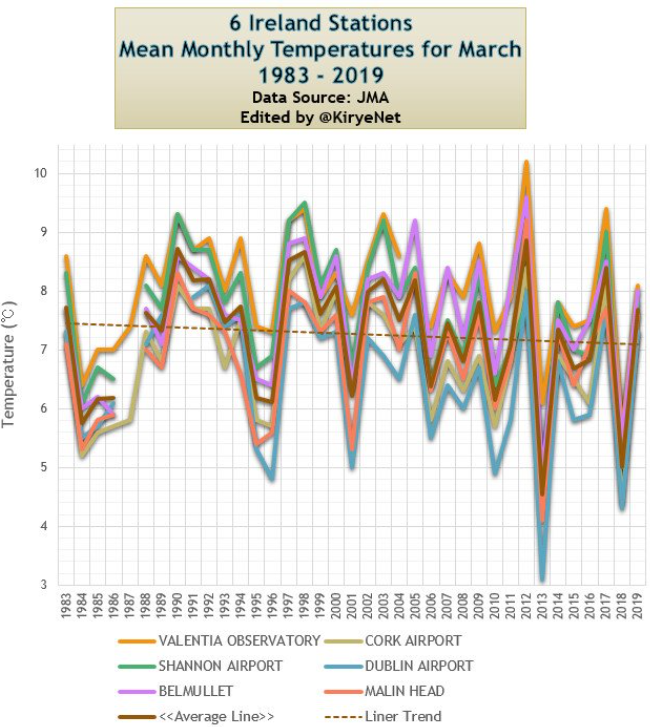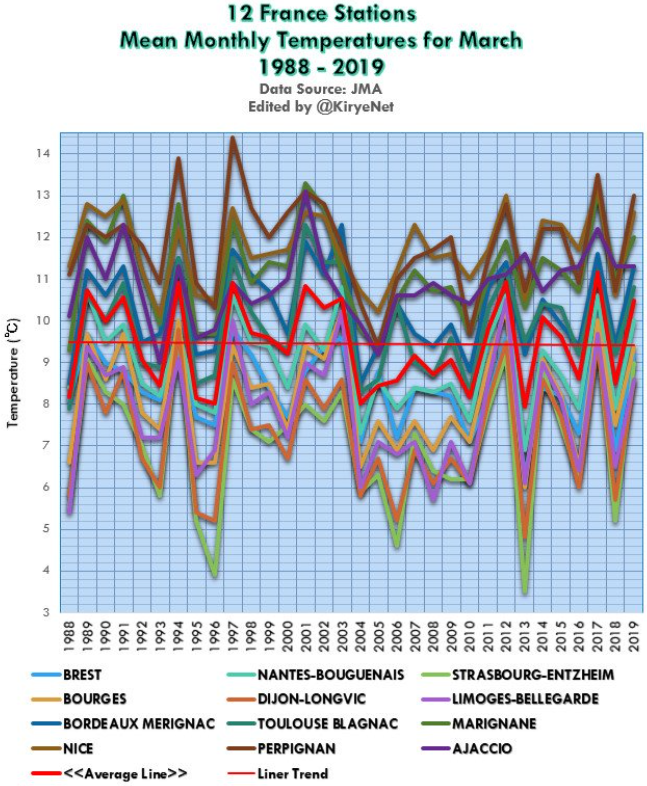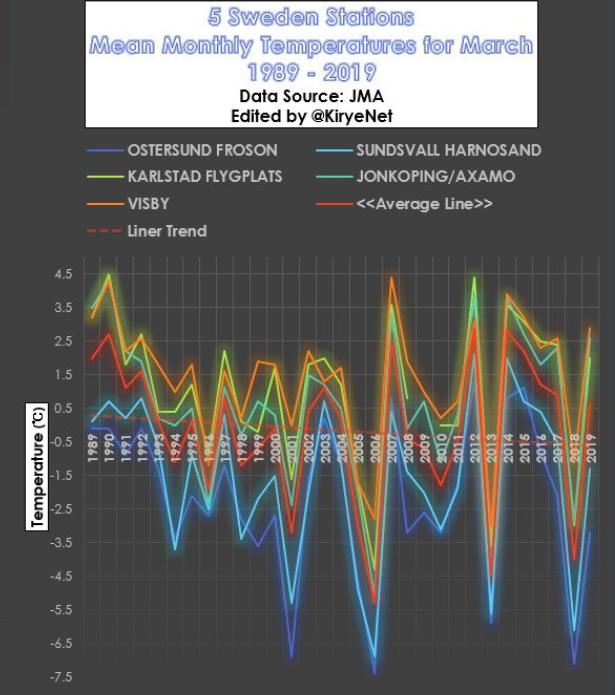- Joined
- Dec 31, 2016
- Messages
- 11,375
- Reaction score
- 2,650
- Gender
- Male
- Political Leaning
- Independent
Wasn't it in March, when Trump asked where was that Climate Change? Most of the US was not extremely hot in March, but around the world (including Alaska), the averages equate to the 2nd hottest March on record.
Global temperatures in March were second hottest on record
Temperatures in March were the second hottest on record around the globe, according to new U.S. government data.
Record-breaking highs in places like Alaska and Australia pushed last month near the top of the record books. The hottest March on record was in 2016, according to National Oceanic and Atmospheric Administration (NOAA) data released Thursday.
Regions that experienced the hottest temperature variances last month were Australia, southwestern and central Asia, Alaska and northwestern Canada. Alaska and Australia had their warmest March temperatures since record-keeping began in 1925 and 1910, respectively.
Global temperatures in March were second hottest on record
Temperatures in March were the second hottest on record around the globe, according to new U.S. government data.
Record-breaking highs in places like Alaska and Australia pushed last month near the top of the record books. The hottest March on record was in 2016, according to National Oceanic and Atmospheric Administration (NOAA) data released Thursday.
Regions that experienced the hottest temperature variances last month were Australia, southwestern and central Asia, Alaska and northwestern Canada. Alaska and Australia had their warmest March temperatures since record-keeping began in 1925 and 1910, respectively.





